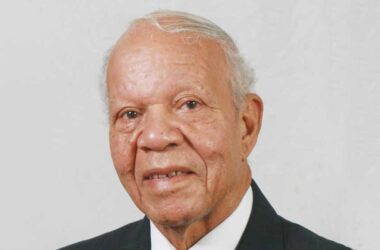THAT it had to take the Zimbabwean Parliament’s serious move to go ahead and begin impeachment proceedings against Zimbabwe’s former president, Robert Mugabe, for him to finally step down, proves just how powerful a drug political power can reach. However, the people have not only spoken – they have acted, and now Mugabe is history.
After nearly two weeks of the military and Mugabe’s own political party, the Zimbabwe African National Union-Patriotic Front (ZANU-PF)’s call for the former war hero and political prisoner who fought for Zimbabwe’s independence, the 93-year-old Mugabe tendered his resignation last Wednesday.
For a leader who became a champion to his countrymen and women over four decades ago, Mugabe’s exit was less than graceful. To the end, he attempted to prove that Zimbabweans are better with him than without him. After wresting his country from the clutch of white minority rule, the now frail Mugabe’s voice and political will seem a mere shadow of what they were like in times past.
The writing was on the wall for Mugabe after his love for country turned into something else that turned his own people – including the very political party and military that propped him up for 37 years – against him. At some point, Zimbabweans had gotten tired of the record inflation, bigotry and blame game directed toward the West as he suppressed dissent and reportedly had those who opposed him jailed or killed.
But with Mugabe now gone, many Zimbabweans are uncertain about their nation’s future. Like many people around the globe, there is the possibility that one dictator being replaced by someone who has close ties to Mugabe and his ZANU-PF can continue the political unrest and economic hardship. The fates of sixteen and a half million Zimbabweans now lie in the hands of whomever replaces Mugabe.
Mugabe’s ouster, though, came as a surprise to many around the world who expected more bloodshed before Mugabe’s resignation letter. For someone who fashioned his moustache after German dictator, Adolf Hitler, and had grand designs that he would die in office, the military and ZANU-PF seemed to have pulled off a massive feat, notwithstanding that there would be key players behind the scenes, including Zimbabwe’s biggest trading partner, China.
In fact, world leaders were virtually mum on what was perceived – and denied – to be a military coup in Zimbabwe until Mugabe relented by sending in his letter to Parliament as impeachment proceedings were brought against him. One would have thought that given the cold shoulder Mugabe had received from around the world following the many atrocities he ordered against his own people, that there would have been a greater outcry from around the world, especially from world leaders, that he stepped down. But, as fate would have it, the man who once thought he had all the power in the world, relinquished it, albeit under duress.
While Zimbabweans might be rejoicing in their newfound liberation, their new journey will undoubtedly entail a period of reconciliation and reworking of policies that redound to the overall good of Zimbabweans and the country’s image on the global scale. While there will be Mugabe apologists here and there, the truth of the matter is that democracy also gives citizens the right to remove from power those whom they elected through democratic means. As such, leaders like Syria’s president, Bashir al-Assad, might want to take note of the Zimbabwe experience.
While absolute power can corrupt absolutely, politicians the world over need to recognize that this is a new era in which more and more people are willing to go above and beyond the norm to demand that their votes and voices mean much more than the despotic plans of politicians who see the electorate simply as a means to a selfish end. Now is the era where people are willing to back up their words with actions and bring about the change they desperately seek.
















Stan,
Your “editorial” represents one of the sorriest efforts of modern-day fiction, that I immediately thought you were acting as chief stenographer for “gros chas”.
In the remote chance that my assessment may be wrong, could you share some of the sources from which you derive ‘your’ allegations?